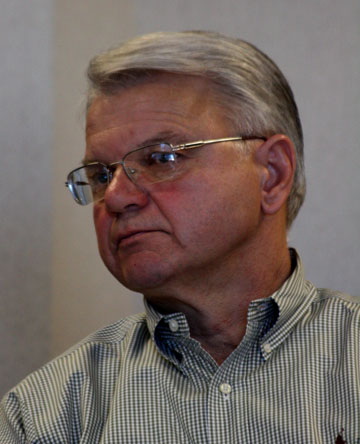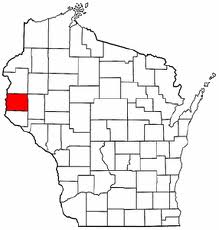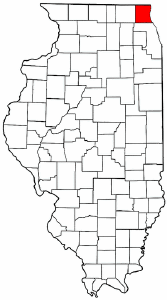Entries in Bill Rakocy (21)
5/26/11 Shirley Runs off with Duke: Flipping a Wisconsin wind farm for fun and profit-- well, not for residents, but for the developer AND The wind industry calls them 'whiners', the rest of us call them people: A pharmacist visits a wind project to see what all the fuss is about
 Wisconsin Wind Farm Sold to Duke Energy
Wisconsin Wind Farm Sold to Duke Energy
Company Will Surpass 1,000 Megawatts of Wind Power

PRESS RELEASE: CHARLOTTE, N.C., May 26, 2011 /PRNewswire/ -- Duke Energy (NYSE: DUK) will acquire a 20-megawatt wind farm in operation in Wisconsin.
Duke Energy Renewables, a commercial business unit of Duke Energy, agreed to purchase the Shirley Windpower Project from a subsidiary of Central Hudson Enterprises Corporation on May 24. The wind farm is located on approximately 500 acres of leased land in Glenmore, roughly 30 miles southeast of Green Bay.
The Shirley Windpower Project, which began commercial operation in December 2010, sells all of its output and associated renewable energy credits to Wisconsin Public Service Corporation under the terms of a 20-year power purchase agreement. The eight Nordex 2.5-megawatt (MW) wind turbines that comprise the Shirley Windpower Project are capable of generating enough electricity to power approximately 6,000 homes.
"Our strategic acquisition of the Shirley Windpower Project not only helps us reach the 1,000-megawatt milestone, it serves as a springboard for growth in a new region of the United States," said Greg Wolf, president of Duke Energy Renewables.
The deal is expected to close this summer. The purchase price was not disclosed.
With the addition of the Shirley project, Duke Energy Renewables will own 1,006 MW of generating capacity at 10 U.S. wind farms – four in Wyoming, three in Texas, one in Colorado, one in Pennsylvania, and one in Wisconsin.
On May 24, Duke Energy Renewables announced plans to start construction of a 168-MW wind power project in Kansas in the fall of 2011.
Since 2007, Duke Energy has invested more than $1.5 billion to grow its commercial wind and solar power businesses.
About Duke Energy Renewables
Duke Energy Renewables, part of Duke Energy's Commercial Businesses, is a leader in developing innovative wind and solar energy solutions for customers throughout the United States. The company's growing portfolio of commercial renewable assets includes nine wind farms and four solar farms in operation in five states, totaling approximately 1,000 megawatts in electric-generating capacity.
Headquartered in Charlotte, N.C., Duke Energy is a Fortune 500 company traded on the New York Stock Exchange under the symbol DUK. More information about the company is available on the Internet at: www.duke-energy.com.
|
MEDIA CONTACTS Duke Energy |
Greg Efthimiou |
704-382-1925 |
|
|
24-Hour |
800-559-3853 |
NOTE FROM THE BPWI RESEARCH NERD: The Enz family abandoned their home in this wind project because of turbine related problems. The project, which has been on line for less than a year, has already been sold twice. Read about the Enz family and why they left their home by clicking here.
·FROM AUSTRALIA
From: George Papadopoulos, Pharmacist
To: Jillian Skinner MP, NSW Minister for Health; Brad Hazzard MP, NSW Planning Minister
Regarding: Wind Turbine Syndrome victims of the “Crookwell 1 Trial Wind Turbine” site, New South Wales (Australia)
Date: May 24, 2011
Dear Ministers,
I am a trained and registered, practising health professional (pharmacist).
Yesterday, I met two elderly ladies from the Crookwell region who have been for years quietly suffering the effects of what has been described as Wind Turbine Syndrome.
These ladies have been quietly suffering for years. Their local medical practitioners are unable to do much beyond prescribe antidepressants, sleeping tablets and other medication, or recommend that they move.
There is a lack of “published peer reviewed evidence” that these health problems exist, as the Australian National Health and Medical Research Council’s (NH&MRC) “Rapid Review” report pointed out. But that does NOT mean there is no health problem, which is what the wind developers and many individuals in government have been wrongly inferring or assuming from the NH&MRC’s report. They have ignored the NH&MRC’s advice to “adopt a precautionary approach.”
I asked one of these ladies why she hasn’t taken the matter further—why she isn’t discussing the matter with the locals. Well, surprisingly, the locals have ostracised her for making comments that might affect the tourist business in Crookwell. So she decided to shut up and suffer, or otherwise become a social outcast.
So who is listening to these quiet victims of this “innovative,” original New South Wales (NSW) wind turbine trial? Why is it that the suffering of these quiet victims has not affected the planning process of newer wind turbine developments?
Strange isn’t it? What was the point of this trial site?
I then decided with two companions to pay my own visit to the local trial industrial wind turbine site—situated amongst rural blocks. I have never been so close to a wind turbine site before. In fact, so close (within 250 metres) thanks to a third victim of this development, who allowed us to access their property. This third victim also needs sleeping pills to sleep and is unduly chronically ill due to Wind Turbine Syndrome.
Well, our experience was absolutely stunning! Almost immediately, pressure sensations in the head abruptly started—plus blocked ears that could not be relieved by swallowing or yawning. We couldn’t hear any loud deafening noises, but the constant whooshing noise was phenomenal—enough to drive you mad.
We were ultimately compelled to leave the site due to severe nausea in all three of us. Perhaps it wasn’t a good idea to get so close to the turbines. Eventually it was only at 5km away that we finally felt totally relieved and normal—we had finally escaped this whirlpool of disaster.
My dear politician, I am not having a joke. This is no good story. It is a very sad reality of what is happening here in Australia, in our meant-to-be progressive, clean democracy where the rights of the individual should be upheld against the little, if any, good that can be found in these developments.
Why are our planning departments ineffective in drafting policies to protect public health? Why aren’t our health departments effective in monitoring the health of individuals surrounding these industrial power sites? Why are the local medical practitioners and other local health professionals so slow in protecting these most sweet, kind-hearted elderly souls?
The reason is, despite these problems being reported globally, no government has listened to its citizens and ensured that appropriate independent acoustic and medical research is commissioned and funded, to help find out why these problems are occurring and how to prevent them. Or, in plain terms, research which will determine the safe distance between turbines and homes and workplaces.
If this were a drug, these experiences would be reported as “Adverse Events” and the drug would be withdrawn, pending further investigation until its safety from unanticipated side effects could be guaranteed. The equivalent in this situation is to immediately instigate a moratorium where turbines are close to homes, and fully investigate these occurrences.
It’s time to do something about it. The recent Federal Senate Inquiry has heard many stories such as the one above, in both written and oral testimony. I hope you feel compelled as a publicly elected official in a democratic country to do something about this great injustice—and stop it from happening again and again in different sites around NSW and the rest of Australia.
4/16/11 What's happening with Wisconsin's wind rules? Recommended Reading: Rep. Frank Lasee's proposal
PROPOSED WIND FARM REGULATIONS
SOURCE: WFRV GREEN BAY
BROWN COUNTY, Wis. (WFRV) -- A proposal from an area lawmaker will make it even harder for wind farmer developers to build in the state. This after two developers recently pulled the plug on projects in Northeast Wisconsin.
David Enz built his home for his family back in 1978. But last month he and his wife decided they could no longer stay.
"Started feeling pressure in my ears, feeling pressurized, started feeling unstable," Enz said.
Enz attributes the symptoms to the eight wind turbines that were built last fall about a half mile from his house.
"It gets to the point where your body just does not want to be here, it just can't be here," said Enz.
Today, State Senator Frank Lasee introduced legislation that would require developers to keep turbines at least 2,250 feet from a person's property unless there's permission to build closer.
Right now, they need to be at least 1,250 feet from homes. Earlier this year, Governor Scott Walker said he wanted to change the law to 1,800 feet.
Senator Lasee says that's not enough.
"Two thousand fifty feet is a reasonable distance that will help preserve their health and safety because of shadow, flicker, noise and I believe there is either magnetic or electric noise that causes health problems for people," Lasee said.
Last month, two wind farm developers pulled out of projects in both Brown and Calumet Counties, saying the current regulations already go too far.
According to Senator Lasee, the strict regulations aren't what's driving companies away from projects here in Wisconsin. He says it all comes down to money.
"Many utilities are no longer paying premiums which drive up our electric costs for wind energy so they're having trouble getting a contract that would pay," Lasee said. "I think they're using this as an excuse."
Enz hopes the Senator's proposal can prevent other families from going through what he has.
"We have a house that we can't live in," he said.
Enz and his wife have been staying with their children for the last few weeks. Senator Lasee is circulating the bill in the senate and assembly.
LASEE BILL WOULD CHANGE RULES FOR WIND ENERGY SYSTEMS
Sen. Frank Lasee is circulating for co-sponsorship a proposal revising PSC authority over wind energy system siting. Basically, the bill requires owners of a large wind energy system to design and construct the system so a straight line distance from the vertical center line of any turbine in the system to the nearest point on the property line be at least one-half mile. The distance could be shorter if the system owner and property owners agree to a lesser distance. The bill also changes the distance from the vertical center of any turbine to the permanent foundation of any building.
Link to PDF of the proposed bill:
http://thewheelerreport.com/releases/April11/0415/0415lrb1507.pdf
2/25/11 Big Wind vs little communities in St. Croix County
 Is this St. Croix County's Future? Fond du Lac County home in the Invenergy wind projectLOCAL COMMUNITES COMING [TOGETHER] AGAINST WIND FARMS
Is this St. Croix County's Future? Fond du Lac County home in the Invenergy wind projectLOCAL COMMUNITES COMING [TOGETHER] AGAINST WIND FARMS
SOURCE: New Richmond News, Pierce County Herald www.piercecountyherald.com
February 24, 2011 By: Chris Hamble - Hudson Star-Observer and Jeff Holmquist -
The question of wind turbine location has roiled communities in St. Croix County. The township board of Forest was recently recalled in the Feb. 15 election and the Town of Troy has passed a moratorium on wind farm development.
At its board meeting Thursday, Feb. 10, the town of Troy passed a resolution putting a temporary moratorium in place for the development of wind-energy turbines in and around the town.
A four-man committee was organized by town chair Ray Knapp to look into the “what and how” of possible turbine energy generators and to make an ordinance for the town regarding the building, regulation and usage of possible turbines in the future.
Currently, there is talk at the state capital that the new administration is looking to make strict regulations and standards regarding wind turbine usage, visibility and setbacks. According to Knapp, in a situation such as this, the town may not be “more strict” with its regulations than the state.
Since the state has yet to fully develop a plan, it was suggested that the town issue a moratorium on the building of wind turbines, even though there is currently no plan to build any. The board hopes to keep prospectors and developers from looking into the possibility of constructing turbines until the town can get a hard ordinance on the books. This move was also suggested by the Wisconsin Towns Association.
The moratorium unanimously passed, and is effective until Sept. 26.
“This temporary stay in wind permits will give us time to come up with something right for the town,” said Knapp.
In addition to the moratorium, Knapp also reported that under the current project timeline, the committee would like to draft a possible town ordinance by the regularly scheduled July board meeting, and also compile a list of possible sites for developers to inspect.
_________________________________________________________
The ongoing wind farm controversy has blown the sitting Town of Forest board out of office.
A recall election on Tuesday, Feb. 15, held in conjunction with the Wisconsin primary, went to the three challengers in the contest.
For the chairman position, Jamie Junker gathered 194 votes and incumbent Roger Swanepoel had 123 votes.
For the position of supervisor, challengers Rick Steinberger (207 votes) and Patrick Scepurek (185 votes) were elected. Incumbents Carlton Cress (123 votes) and Douglas Karau (113 votes) were voted out of office.
The recall election was the result of a group of Town of Forest residents who circulated a petition to remove the current board. The petition included the signatures of 93 town residents. A total of 50 signatures was required for a recall election to be conducted.
The group’s main issue with the current board was their approval of a wind project proposed by Emerging Energies LLC, which calls for some 39 turbines to be installed on parcels scattered throughout the township.
Opponents of the plan claim the proposal was approved without appropriate notice and participation from the public.
“The recall election pretty much speaks for itself,” said Junker following his successful run for the chairman post. “The Forest residents have concluded through simply reading a vast number of documents that a number of legal irregularities have taken place. These irregularities are easily understood by anyone that took the time to read the public documents to know what happened in Forest. With great confidence that they had the legal proof, the residents of Forest moved for the rare recall of its officials from office, and to nobody’s surprise they won.”
Junker said the town residents “were never told of the project details until the evening the agreement was actually approved, never knowing of the placement, size, or number at any point during what has repeatedly been said was a public process.”
The towns’ plan commission was also never publicly told of the details, Junker said, yet the formal agreement says the plan commission recommended the agreement.
“Clearly the residents of Forest feel that the previous town board, proven through the records, tried to pull the wool over the residents’ eyes and we’re finding out it didn’t work,” he said.
Junker pledged that the new town board will do “everything legally possible” to stop the wind turbine project now that they’re in office.
He said the chances of the project being stopped are good.
In a phone interview, Steinberger said he was pleased with the results of the recall.
“It was just what I had hoped for,” he said.
Steinberger said he is ready to take on the job of town supervisor and he promised to “represent the people.”
“I want to keep the process open and honest,” he said.
Scepurek was pleased with the outcome as well.
“The citizens of the township decided enough is enough,” he said.
He noted that almost all of the registered voters in the town cast a ballot in the recall, which was an encouraging sign.
“People are waking up and taking notice,” Scepurek said. “People have to start being informed and make sure that things don’t happen under the radar.”
Outgoing supervisor Cress said he didn’t have much to say in the wake of his recall, other than to say he was frustrated by the single-issue focus of the campaign to kick the board out.
“It was unfortunate that it came down to a wind turbine issue and not what it takes to run a township,” he said.
Swanepoel and Karau did not return phone calls to get their reaction to the results of the election.
2/18/11 Big federal lawsuit in little WisconsinTown of Forest
 Bill Rakocy, founder of Emerging Energies, is named in the lawsuitFOREST RESIDENTS FILE SUIT AGAINST TOWN OFFICIALS
Bill Rakocy, founder of Emerging Energies, is named in the lawsuitFOREST RESIDENTS FILE SUIT AGAINST TOWN OFFICIALS
SOURCE: New Richmond News, www.newrichmond-news.com
February 17, 2011
By Kevin Murphy,
Three Town of Forest Board supervisors subject to a recall election are defendants in a federal lawsuit alleging their secret agreement of a wind farm developer violated some property owners’ constitutional rights.
According to the suit filed Feb. 9 in Madison:
A group of town residents calling themselves “Forest Voice” alleged board supervisors Roger Swanepoel, Douglas Karau and Carl Cress approved an agreement with Emerging Energies of Wisconsin in April 2008 without notifying affected property owners or holding a public hearing.
In the plan, not announced publically until Aug. 12, 2010, EE sought town approval to construct 39 wind towers of up to 500 feet tall. According to “Forest Voice,” EE’s turbines would create noise and “shadow flicker” up to one-half mile away when operating, diminishing the value of use of the affected properties.
Swanepoel, Karau and Cress also had a conflict of interest in representing the town because each of them or a family member could obtain annual financial payments from EE because they would host or were considering hosting a wind turbine on their property, the lawsuit alleges.
Calls to Swanepoel’s and Karau’s residences Monday seeking comment on the allegations weren’t returned before deadline. Cress said he had no comment Monday on the suit’s allegations.
The agreement approved in April 2008 with EE was reached through a “walking quorum” of phone calls, e-mails and personal conversations in apparent violation of state open meeting laws, the lawsuit claims. The agreement grants annual payments to property owners including Swanepoel, Karau and Cress, living within one-half mile of a wind turbine.
While the agreement creates a “financially favored” class of persons within the town who would benefit from annual payments, it also creates a “financially disfavored” class in terms of safety, quality of life, use of property and property values, the lawsuit claims. Those residents would all be adversely affected by EE’s proposed wind energy project, “Forest Voice” members claim.
Alleged “financially disfavored” residents include:
• Property owners not selected by EE to host a wind turbine but living within one-half mile of one owned by another individual:
• Persons living more than one-half mile from a proposed wind turbine location:
• Persons owning non-occupied residents within one-half mile of a turbine:
• Those living within one-half mile of a turbine who opposed the wind energy project.
“Forest Voice” members including Judi Beestman, Bill Dyer, Jeff Erickson, Scott Voeltz and Brenda and Robert Salseg, are town residents opposed to the EE project on safety and quality of life issues. The board failed to tell the Salsegs about the proposed agreement when approving the Salseg’s request for a trailer home on property within one-quarter mile of a proposed turbine.
The “Forest Voice” residents aren’t eligible for annual payments under the agreement because either the property they own isn’t within one-half mile of a proposed turbine or their property is within a half-mile of a turbine on land owned by someone else.
This “differential selective treatment” of residents in the 2008 agreement is not only “patently arbitrary and irrationally discriminatory, with no rational relationship to any legitimate governmental purpose,” according to the suit, it’s also designed to financially reward participating property owners including Swanepoel, Cress and Karau or their families.
By 2010, the town’s attorney became concerned about the conflict of interest Cress and Swanepoel created by signing the agreement, especially Swanepoel, according to the suit. To disguise and remedy Swanepoel’s conflict, the suit alleges, attorneys for the town and EE and EE co-founder, William Rakocy, devised an illegal “walking quorum” which violated open meeting laws but where the town board would adopt a new agreement without Swanepoel voting.
The 2010 agreement was also developed though secret negotiations between board members and EE and approved without holding a public hearing, “Forest Voice” alleges.
The agreement creates annual payments of $4,000 per megawatt, up to 50 megawatts, to be divided equally among the town, St. Croix County and each property owner of an occupied residence within one-half mile of turbine on their property.
Calls to the attorney for Forest Voice wasn’t returned before deadline.
Attempts to contact Rakocy on Monday weren’t succesful.
The suit claims the board’s approving the 2008 and 2010 agreements without holding a public hearing and completed for their financial reward violated the due process and equal protection rights of the members of “Forest Voice.”
The suit seeks unspecified damages from the town, the three board members and EE.
The suit also seeks a permanent injuction against constructing the EE wind energy project.
2/16/11 UPDATE 1:06 Big Wind's big upset in little Town of Forest AND Look what they've done to my ag field, Ma AND Turbines in the news: Watch "Europe's Ill Wind" Same turbines troubles told with different accents AND Turbines banned in Lake County IL AND AWEA says the Golden Eagle isn't the the kind of gold we're after
 TOWN CHAIR AND TWO SUPERVISORS VOTED OUT IN RECALL ELECTION
TOWN CHAIR AND TWO SUPERVISORS VOTED OUT IN RECALL ELECTION
St. Croix County (WQOW) - The results from the recall elections in the Town of Forest are officially in.
The town chair and two supervisors have been voted out.
In the town chair race, Jaime Junker (194) was voted in to replace Incumbent Roger Swanepoel (123).
In the town supervisor race, Rick Steinberger (207) and Patrick Scepurek (185) were voted in to replace both Incumbents Carlton Cress (123) and Douglas Karau (113).
The recall is in response to a wind turbine controversy in the town.
************************
Latest WQOW News 18 story on wind turbines:
A citizen group files a lawsuit against the Town of Forest. That's north of Glenwood City.
An energy company is looking to build more than three dozen wind turbines on various properties in the area. The board approved the measure last year, but residents say they were kept in the dark about the plans.
The group is concerned about diminished land values and noise pollution from the turbines, which could be up to 500 feet tall. The group is asking for a permanent injunction to stop the building of the turbines.
[DOWNLOAD TOWN OF FOREST LAWSUIT DOCUMENT]
SECOND FEATURE:
THIS JUST IN: SCROLL DOWN TO READ NEW LEGISLATIVE ALERT FROM JOHN DROZ JR.
Click on the image above to watch ag land being torn up for a wind turbine
EUROPE'S ILL WIND: FILM REVEALS SAME TURBINE TROUBLE AS IN THE U.S.
Europe’s Ill Wind is a film about the views of people living near existing or planned wind farm developments. Their objections have been dismissed by the wind industry, government and pro-wind campaigners as selfish NIMBYism, leaving unanswered many questions about the reliability and environmental credentials of wind energy.

COUNTY BOARD RESTRICTS WIND FARM PROJECTS
There will be no large wind farms or towering energy turbines on the horizon for unincorporated Lake County, after the County Board voted Tuesday to bar such facilities from its development ordinance.
The 17-5 vote came after almost two years of county study on the issue and left some northern Lake County residents who had fought against allowing commercial wind farms overjoyed.
“It’s great,” Carol Sebesta of Old Mill Creek said after the board’s vote. “So many things have not been settled as far as their effects on children and the elderly.” READ ENTIRE STORY: Chicago Sun Times

WIND INDUSTRY GROUP OPPOSES FEDERAL GUIDELINES TO PROTECT BIRDS
The American Wind Energy Association Industry said it will oppose plans by a federal agency to adopt voluntary regulations on wind developers to protect birds and other wildlife.
AWEA said in a release that more than 34,000 MW of potential wind power development, $68 billion in investment and 27,000 jobs are at risk due to U.S. Fish and Wildlife Service policies on golden eagles.
Read entire article: www.pennenergy.com
EXCERPTS: NEW LEGISLATIVE ALERT FROM JOHN DROZ JR
As you know, probably never before has the US Congress been so focused on making budget cuts. There will be an important vote today in the House, but this process will go on for awhile, as there is no real resolution in sight.
[THANK YOU to all those who contacted their congressional representative yesterday.]
In my view, we MUST take advantage of this window of opportunity and do EVERYTHING possible to get wasteful renewable energy spending added to these cuts.
As has been discussed before, a superior energy target is "1603 Grants" — which amount to some $5 Billion. If these federal subsidies are removed, the whole wind industry in the US could collapse in one fell swoop!
There is NOTHING we can do that is simpler, faster, or less expensive, that will get this beneficial result.
If you want some information about 1603 Grants, see <<http://www.masterresource.org/2011/01/section-1603-windfall/ <http://www.masterresource.org/2011/01/section-1603-windfall/> >>.
------------
A good site that was sent to me seems to be the best place to go: <<http://majorityleader.gov/YouCut/ <http://majorityleader.gov/YouCut/> >>. This gives a complete list of the "Continuing Resolution" programs that Republicans are currently targeting to cut. So far the 1603 Grants are not on the list!
Note that their savings total is only $100 Billion (for 150 programs), so adding this one item for $5 Billion will get their attention.
At the bottom of that page, please click on the part that says Submit Your Idea.
The main argument that AWEA and the lobbyists are using to "justify" 1603 grants, is that it will produce jobs. Like almost everything they say, this is a ruse — and should be exposed as such. Here is what you might write (using your own words) at <<http://majorityleader.gov/YouCut/YourIdea.htm <http://majorityleader.gov/YouCut/YourIdea.htm> >:
"Please eliminate the 1603 Grant program as it is very wasteful spending. Independent studies have shown that this will result in a net jobs loss, that many of the jobs created will be outside the US, that the cost of jobs created is very high, that the benefits of these 'make work' jobs are very low, etc. And why are we borrowing money from China to subsidize an industry that makes 25%± per year in profits???"
If you want some additional information on these types of jobs, here are some reports that have recently come out:
1 - "Defining, Measuring & Predicting Green Jobs" <<http://tinyurl.com/626oa62 <http://tinyurl.com/626oa62> >>, and
[Note that this study was sponsored by a major environmental group!]
2 - "The Myth of Green Energy jobs — The European Experience" <<http://www.aei.org/outlook/101026 <http://www.aei.org/outlook/101026> >>.
PLEASE pass this on to all open-minded US citizens you know who are concerned about us sensibly reducing our debt.
THANK YOU!
john droz, jr.
physicist & environmental advocate
